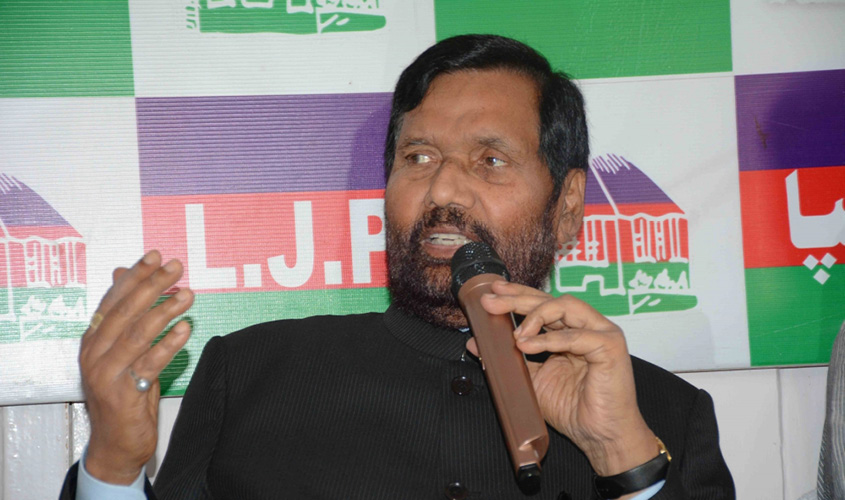The absence of a popular Dalit leader with a mass following in the Bharatiya Janata Party became apparent last week after the Bharat Bandh called by Dalit groups turned violent and the party was forced to field ally Ram Vilas Paswan, the president of Lok Janshakti Party (LJP), to placate the protesters.
When The Sunday Guardian spoke to multiple Dalit leaders of the BJP on whether, or not, the party was missing a credible Dalit face who could have taken on the likes of Mayawati or match the following of Ram Vilas Paswan, most replied in the affirmative.
“It is true that we do not have a Dalit leader who is as popular as Mayawati or Paswan, or the late Kanshi Ram. The most senior Dalit face in the BJP is Thawar Chand Gehlot, but his area of influence is limited. Similarly, even though Paswan is presently in the NDA, we know that he has his own party interests to care for. The same goes for Ramdas Athawale (Republican Party of India). Of course we have Udit Raj, but he joined the party recently, and it will take time before he is accepted as an insider. That we do not have a credible Dalit face became evident last week when we had to field Paswan to make Dalit protesters understand that BJP was pro-Dalit,” said a senior Dalit leader. Gehlot, who is a Rajya Sabha member from Madhya Pradesh, earlier used to contest from the state’s Shajapur Lok Sabha seat until it was abolished during the 2008 delimitation exercise. Gehlot is the also a part of the all powerful 11-member BJP parliamentary board.
According to some party leaders, if Paswan had acted more sensibly, the whole movement would not have become anti-BJP as it turned out to be. “He needlessly gave statements during the bandh. His statements were not anti-BJP as such, but that is how the protesters read by it, which is what he wanted. But we had no option but to field him as we did not have any in-house leader who could communicate the party stand effectively. After the incident, Paswan emerged stronger politically. Now we will have to think twice on how to handle him when the issue of seat sharing in Bihar arises for the general elections,” said a former MP, a Dalit.
However, according
Party leaders said that the Rashtriya Swayamsevak Sangh too knew that BJP did not have enough visible Dalit faces and making Ram Nath Kovind, a Dalit, the President of the country, was aimed at sending out the message that the BJP was not anti-Dalit.
Sanjay Paswan, who once served as a Union minister in the Vajpayee Cabinet, told this reporter that there was a need to bring Dalits to the mainstream. He said, “Congress indulges in conscious caste-ism, and since it was in power for such a long time, it knows how to misuse caste for electoral gains. Whereas, we, in BJP, are still trying to understand these nuances. Dalits need parity, not charity. Dalits do not approve of leaders dining with them. That does not bring in any change on the ground for them. In fact, it can even be interpreted as unconscious casteism, although without any malice. RSS, on the other hand, understands the problems being faced by Dalits and knows what is needed to bring them to the mainstream. RSS leaders really understand caste issues, unlike some of my colleagues in the BJP who have not faced these issues as most of them have come from an urban and elite background,” he said.
A former BJP MP said, “Many of our leaders antagonised the Dalits when they said that the 2 March protests were instigated by the opposition. It was not; it was an organic movement and the opposition started supporting the bandh only after they realised that it was becoming successful. In BJP’s case, there was this absence of Dalit leaders at the top who could advise the ministers on how to handle the situation. The Dalit leaders who have worked for the party for so many years, are articulate, but have been ignored to accommodate leaders from outside,” he stated.
In the 2014 general elections, out of BJP’s 282 MPs, 122 were from the upper castes, while 44 belonged to the Dalit community as per an analysis by the Trivedi Centre for Political Data, Ashoka University. Dalits comprise 201 million or 16.6% of India’s population.

